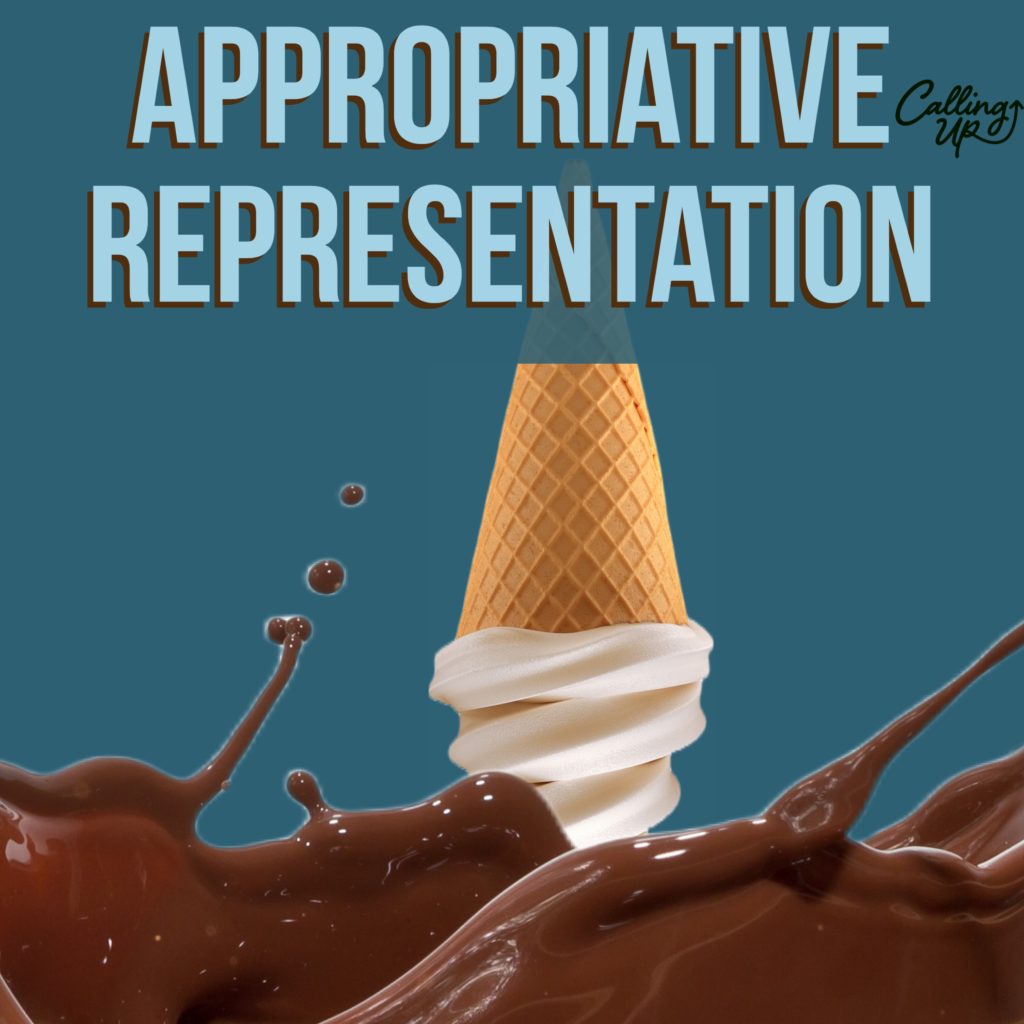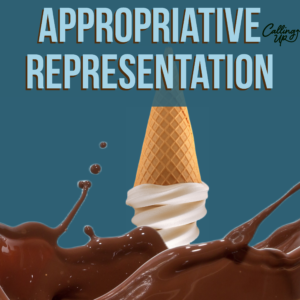
Introducing a term developed for anti-racist purposes: “appropriative representation.” This occurs when a Black person is cast in a role originally written as white, maintaining white dominant narratives but adding Black aesthetics and social capital. This enhances the property, making it more commercially popular, strengthens white intellectual property (IP), and enriches legacy producers who are often white and male. The result looks and feels Black but is appropriating the place of authentic Black representation.
Appropriative representation is related to “cultural appropriation,” which is the use of elements from a culture that is not one’s own without proper understanding or respect. In a white dominant society, cultural appropriation often involves profiting from Black aesthetics. This can manifest in a variety of ways, such as white artists imitating Black music styles, fashion designers using traditional African prints without proper context, or white actors portraying Black characters in film and television.
Authentic Black representation is necessary in a racist white dominant society. However, supremacy culture produces false representation, such as the over-representation of Black people in roles of criminals in media. This criminalizes Black people to justify harming them. Additionally, appropriative representation perpetuates the dominance of white narratives and reinforces the notion that Blackness can only exist within the confines of whiteness.
Color-blind casting is a flawed attempt to address racism. While it successfully includes more Black people in casting, it inadvertently reinforces white dominant behavioral norms. Color-conscious casting, on the other hand, includes the lived experiences of Black people. It recognizes that Blackness cannot be homogenized and that each person’s experiences are unique.
Appropriative representation also includes creating characters like Riri Williams, who inherit the mantle of previously established white characters. This type of character creation can be dissatisfying, and it perpetuates the dominance of white narratives. It also reinforces the idea that Blackness can only exist in relation to whiteness. Instead, we need to create new, original characters that are unapologetically Black and allow Black actors to fully embody them.
We are often put in conflicting positions by supremacy culture, where we have to work against ourselves. Liberation requires escaping the tyranny of white domination within the cultural imagination. We need to create spaces where Black stories and experiences are valued and celebrated without being appropriated or exploited. This means giving Black creators the platform and resources to tell their own stories on their own terms.
In conclusion, appropriative representation is a harmful practice that reinforces white dominance and prevents authentic Black representation from taking place. To combat this, we need to recognize the importance of color-conscious casting and creating new, original Black characters. We must also create spaces where Black stories and experiences are valued and celebrated without being appropriated or exploited. Only then can we truly liberate ourselves from the tyranny of white domination within the cultural imagination.

